Shop the article
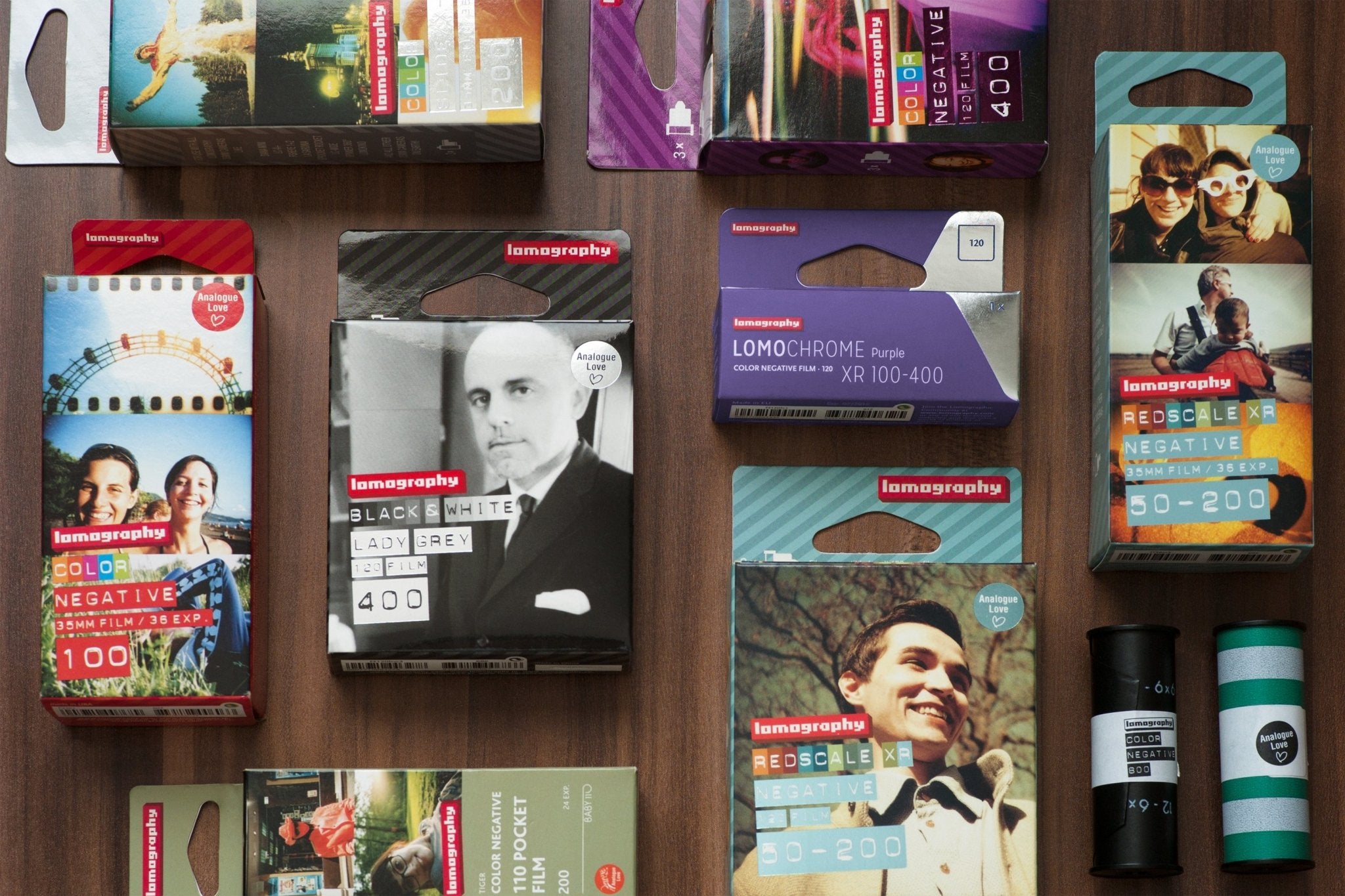
The Ultimate Guide to Lomography Film
By Paul McKay
Lomography has an incredibly broad range of films available for film photographers, and we understand that the choice can sometimes be a little daunting - particularly for beginners! So we've worked with Hannah Brown on a guide to Lomography film: what are the different sub-brands, names, and images you will get with each of the Lomo creations.
We've also added some Insider Tips for getting the best out of each film - but we're sure that there will be plenty more that the community does to create amazing photos! So please leave a comment below with anything you've found works really well with a certain film - and links to your Instagram/Flickr/personal pages are all welcome if they help illustrate the point :-)
Ok Hannah - let's get started!
Lomography Colour Negative Film (CN 400, 100 and 800)
If you’ve never shot with film before and want to give it a go, this is the place to start. The Lomography CN 400 ISO speed film is great for most UK photographers as it can cope with a good range of lighting situations and will be more forgiving of those grey days than the 100 ISO speed films.
Insider Tip - You can always add some colour filters to your flash for a pop of colour or use the filters over the lens for an alternative day time colour effect. Just avoid any dark red filters that would block too much light out. If in doubt change your camera settings (tell your camera it's a 200 or 100 ISO speed film instead) to compensate.
Use the Lomography CN 100 ISO film on your summer holidays for some super sharp colours and punchy hues. The lower-sensitivity to light might mean you need to wait for the right brightness or sunny day to use the film, but you'll be rewarded with a vivid palette and stunning detail. Also don't be afraid to load it up as the nights draw in - it will capture autumnal colours wonderfully, and you can always pair your camera with a flash on your indoor adventures.
The Lomography CN 800 film has recently become one of our most popular films globally, with some highly positive independent reviews online. The reason for the gushing response is that it’s so versatile. It’s the highest ISO film Lomography produces and is great for shooting in various lighting conditions. It’s been praised for the lovely fine grain - which film photographers are often attracted to as a core part of the analogue aesthetic - and produces a good colour tone at the same time.
This is a film that can cope with tricky contrast, dark days and difficult lighting - and still produce images that blow you away.
Insider Tip: Its high sensitivity to light also makes it a great film for taking underwater - where the brightness drop-off below the surface can catch out even experienced photographers!
Redscale XR Film
Give your pictures a distinct orange POP with a roll of Redscale film! This is a special form of film that has the emulsion on the reverse of the plastic backing, so your image has to go through the backing before being captured in the chemicals. Shoot this on a camera with an adjustable ISO and you’ll see how versatile it can be - as the tone of the colour tint varies with the strength of light!
Insider tip: Shoot at a low iso for sepia brown tones and shoot at 100iso for more for stronger orange hues.
Lomography XPro Slide Film
Once you’ve got to grips with shooting with film you can really start to experiment and have fun. There are a multitude of slide films available and each brand delivers a different results. The Lomography XPRO Slide film gives you really strong contrasts, deep greens and bright reds which will make your photos stand out.
'XPro' stands for 'cross-process' which means that you develop the slide film in colour negative chemicals (called C-41 by labs). This is an alternative process to developing the film in colour slide chemicals (called E6) - and traditionally cross-processing Lomography slide film is what gives it the distinctive colours. But there is nothing to stop you from processing it as regular slide film at your lab - so experiment and decide what works best for you!
Lomography XPro is currently only available in 110 and 16mm movie film, but we are hoping that there are announcements soon about 35mm and 120!
Insider tip - These films are perfect for double exposures, also try a roll with the Diana F+ and the Close-Up Lens for some dreamy, painterly effects.
Lomography B&W Films
If you want your B&W shots to have a fine grain with lots of strong contrast then the Lomo B&W Earl Grey 100 is the film for you. It works really well for street photography and can also be used with great results in studio/portrait photos in a studio setting. Because it has the low-sensitivity of ISO 100 it's also a brilliant candidate for inventive double-exposures without worrying too much that you'll wash out the image!
Insider tip - Try loading it up in the Simple Use Camera for some interesting results.
Every film photographer needs to have a go at shooting with B&W 400 ISO film. There are many different types on the market but the Lomography Lady Grey 400 film has been noted for giving excellent results in street photography thanks to its flexibility - you don't have to worry about the 'perfect' conditions, it will perform admirably with whatever you throw at it. It works well in low lighting and can give very sharp results.
Insider tip - If you’re feeling really adventurous try pushing this film, just remember to let the lab know before they process it.
Lomography Kino B&W Films
Now onto Lomography's speciality B&W films. These two black and white films are both inspired by the German cinema scene from the 60’s and are extracted from a roll of cine film produced by a legendary German company who originally used it to make movies. The Berlin Kino 400 film has a great tonal range and can be used in both bright and overcast conditions. Use this with the LC-A+ or any SLR camera for some seriously strong monochrome tones.
The Potsdam Kino 100 film is a lot softer. This has a very fine grain structure and is suited to situations where you need lots of detail. We recommend this film for studio, landscape and architectural photography.
Insider tip - The Potsdam film works exceptionally well when reversed; essentially incorporating all of the benefits of negative film into a positive, and projection friendly format. Talk to your lab about how to get the B&w slide results!
LomoChrome Purple
There is nothing else that can match this glorious colour shifting film: LomoChrome Purple. No need for filters or fiddly settings. Simply take this film out on a sunny day to a park or area with lots of trees and you’ll see those purple colours pop. Scenes with lots of natural greens will be transformed radically; but the subtly reds will come through in most situations. You can also play around with portraits for some trippy results.
Insider tip - It’s hard to believe but this film processes C-41 - exactly the same way as regular film!
LomoChrome Metropolis
This is the newest film in the Lomography family and after a successful Kickstarter campaign we are now in the process of shipping these new rolls of CN film out into the world. It’s a brand new formula, much like the LomoChrome Purple, and gives lots of soft pinkish tones with really strong pops of black. It‘s so new that the UK hasn’t even tested it out yet! What we can say is that our testers enjoyed using it for studio portraits and some thought it worked really well for travel photography.
It's coming to retail stores shortly - sign up for stock notifications on Analogue Wonderland's product page for Metropolis 35mm or Metropolis 120 to be the first to hear when it lands!
Lomography 110 film
Go small and subtle with a roll of Lomography 110 film, the smallest of all the film formats which we re-introduced to the world in 2009. Lomography is the only supplier making fresh film in this format, helping to keep a world of 110 cameras alive and shooting!
Try out the Lomography Redscale 100 film for soft warm tones or get colourful with the Lomography Peacock 110 X-Pro film which will give you strong blue and green tones.
Insider Tip: The small size of the negative will accentuate the grain, so it's the perfect film format for getting beautifully authentic analogue images!
Much-Loved Past Films
Lomography's pace of innovation is so impressive, but not all films make it onto 'permanent' status. One historic film that we hope Lomography will bring back - even for a limited edition! - is LomoChrome Turquoise. It hasn't been seen for a couple of years but past images show unbelievably sharp colour-shifted masterpieces.
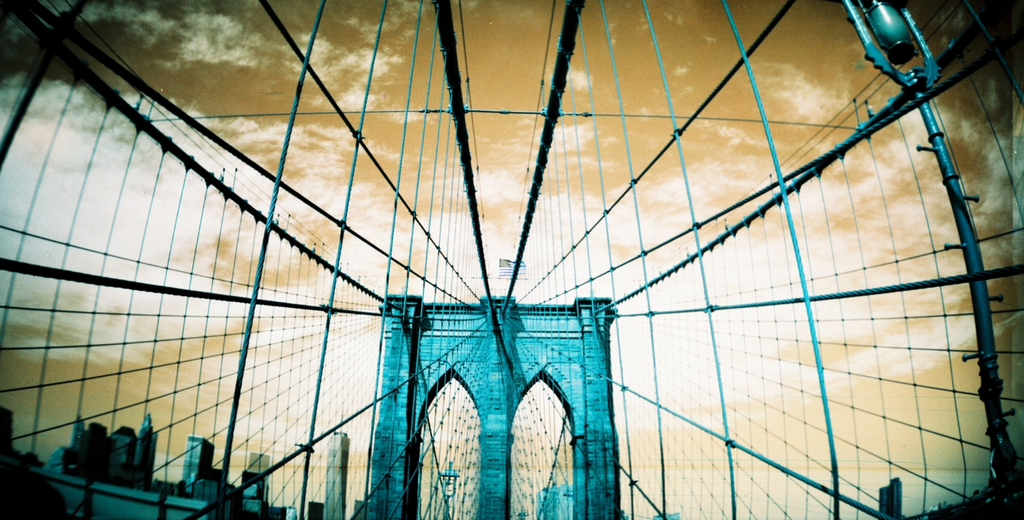
We hope you've enjoyed this Guide to Lomography Films. If you have a particular favourite - or an 'insider tip' of your own to share - then please drop a comment below!
Many thanks - Paul and Hannah
Ready to dive in?
Keep Reading
View all
Analogue Adventures: "Halation Harry" in Oslo 😅
Enjoy some beautiful imagery, powerful inspiration, and amazing halation courtesy of Harry Ma and Cinestill 800T...

The new series: Analogue Adventures
Submit your personal Analogue Adventure - and if chosen we will work together to turn your experience into an article on our site and social posts on our account for posting with the analogue community!

Analogue Adventures: Nic in India
The first in our new series of community articles, find out how film photographer Nic got on with a Pentax 17 camera in India!
Subscribe to our newsletter 💌
Sign up for our newsletter to stay up to date on film photography news, sales and events:
Free Tracked Shipping
On all UK orders over £50
Passion For Film
An unbeatable range and an on-site lab
Our Customers Trust Us
Thousands of independent 5* reviews
All Deliveries are Carbon Neutral
Independently audited and verified by Planet
- Opens in a new window.




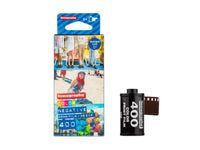
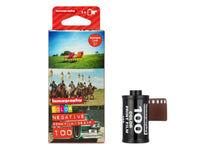
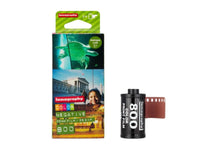
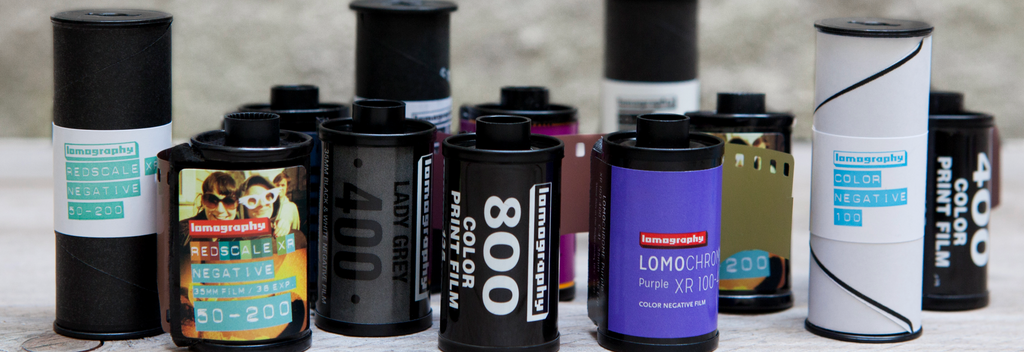
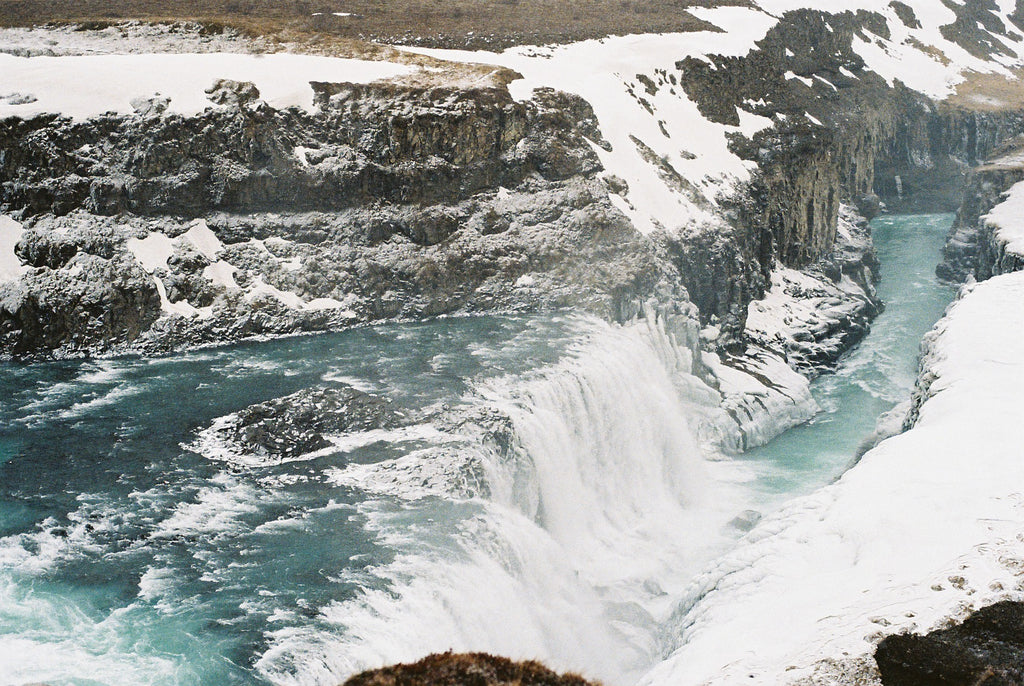




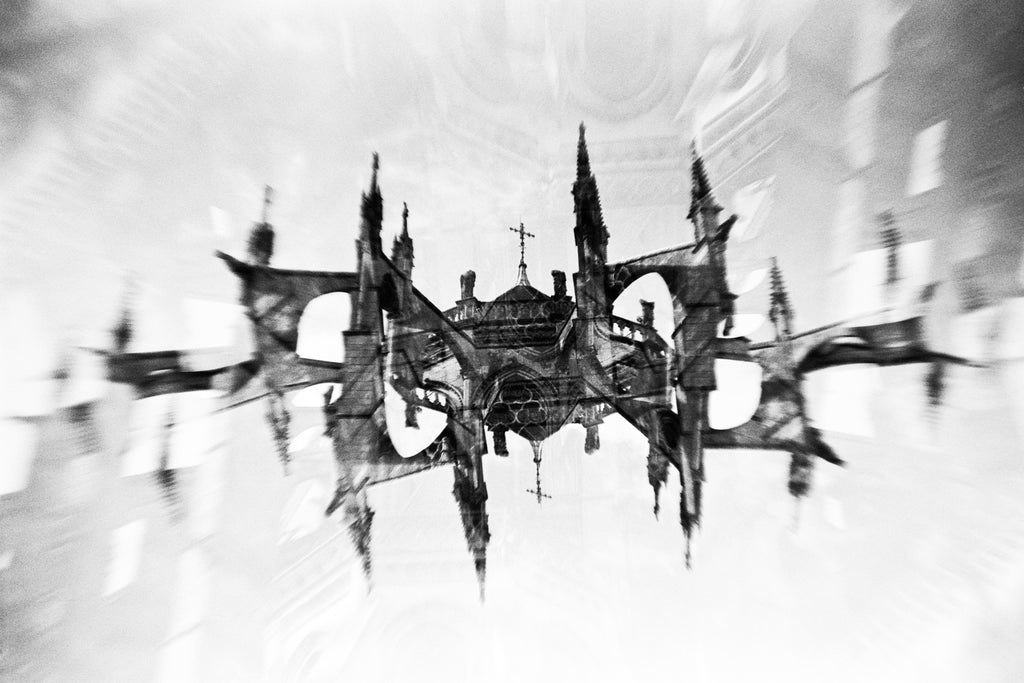
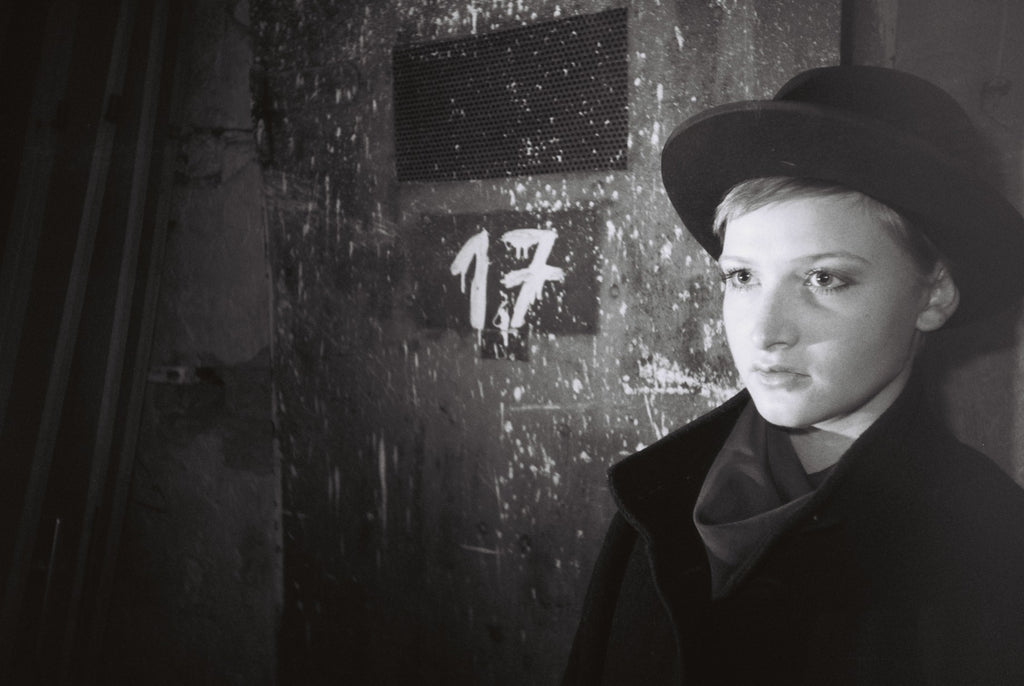
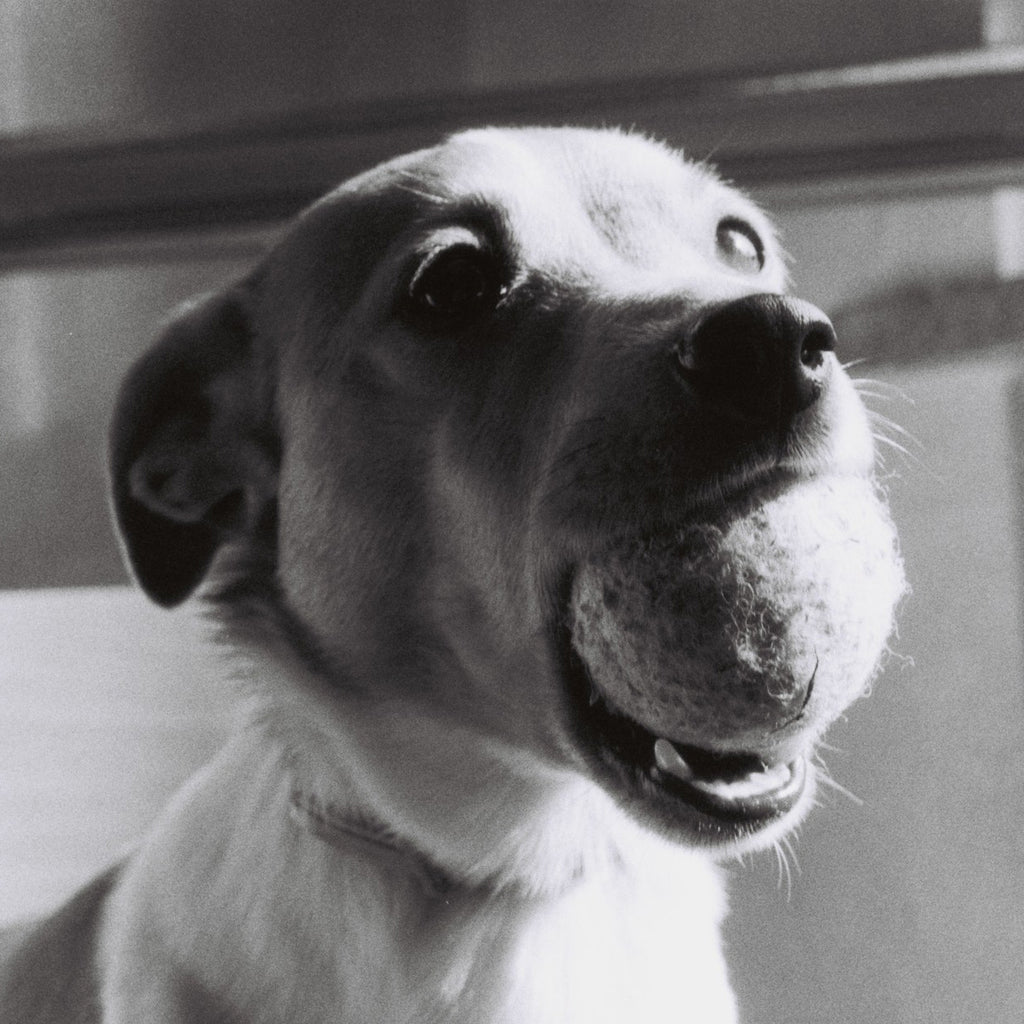
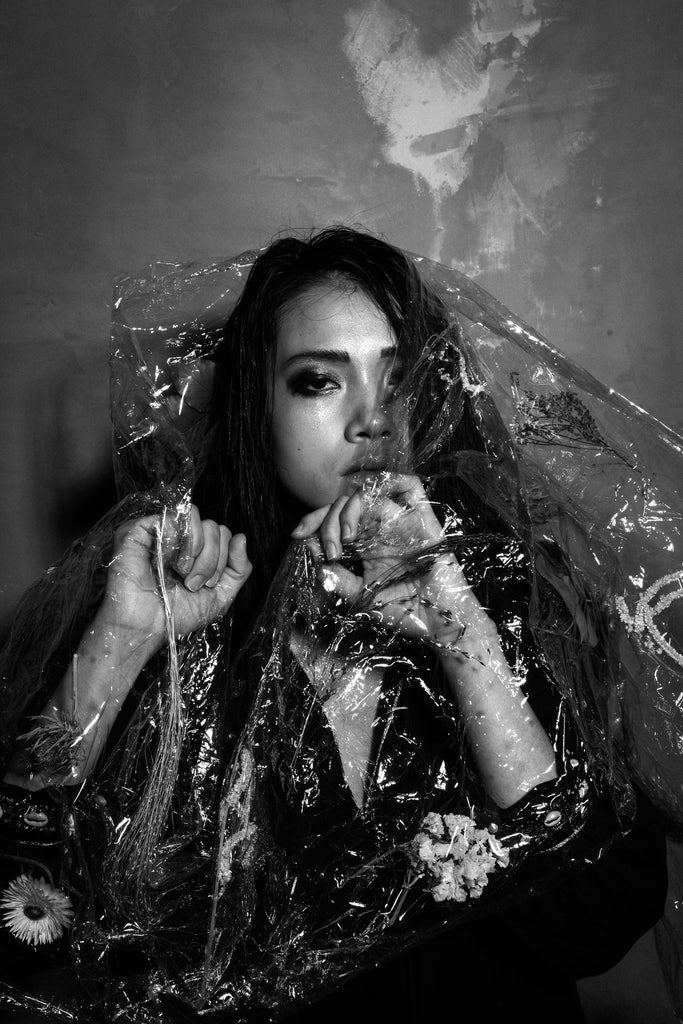


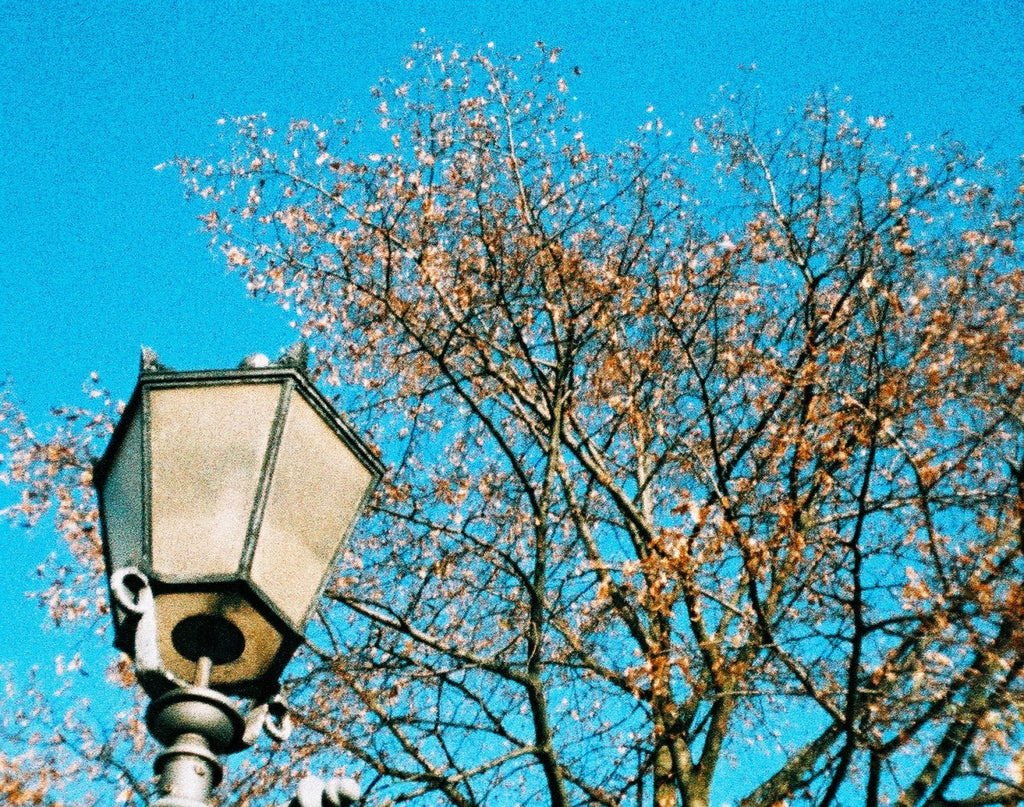
2 Comments -
Richard Waldock • -
Emile •
Any news on the availability of these films?!!
I hope they bring back Turquoise one day!!!